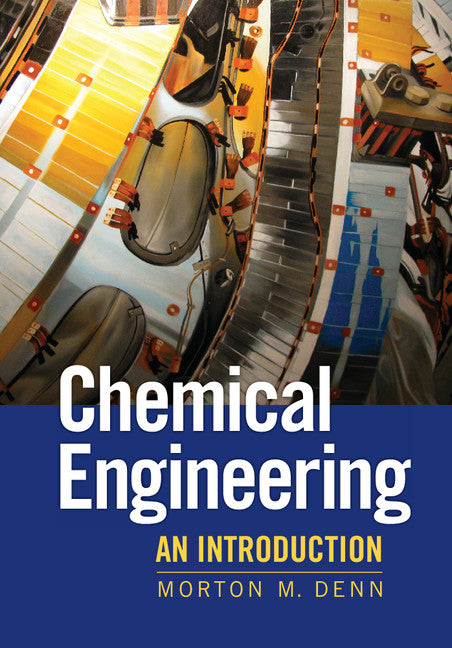Freshly Printed - allow 8 days lead
Couldn't load pickup availability
Chemical Engineering
An Introduction
Chemical Engineering: An Introduction enables the student to explore the activities in which a modern chemical engineer is involved.
Morton Denn (Author)
9781107669376, Cambridge University Press
Paperback / softback, published 30 September 2011
278 pages, 104 b/w illus. 38 tables 87 exercises
25.1 x 17.8 x 1.8 cm, 0.54 kg
'If your students are well-prepared, the text provides a well-structured framework to explore the fundamentals of chemical engineering analysis and to give an overview of the breadth of opportunities that lie ahead for chemical engineers.' David L. Silverstein, Chemical Engineering Education
'Chemical engineering is the field of applied science that employs physical, chemical, and biological rate processes for the betterment of humanity'. This opening sentence of Chapter 1 has been the underlying paradigm of chemical engineering. Chemical Engineering: An Introduction is designed to enable the student to explore the activities in which a modern chemical engineer is involved by focusing on mass and energy balances in liquid-phase processes. Problems explored include the design of a feedback level controller, membrane separation, hemodialysis, optimal design of a process with chemical reaction and separation, washout in a bioreactor, kinetic and mass transfer limits in a two-phase reactor, and the use of the membrane reactor to overcome equilibrium limits on conversion. Mathematics is employed as a language at the most elementary level. Professor Morton M. Denn incorporates design meaningfully; the design and analysis problems are realistic in format and scope.
Preface
1. Introduction
2. Basic concepts of analysis
3. The balance equation
4. Component mass balances
5. Membrane separation
6. Reacting systems
7. Designing reactors
8. Bioreactors and nonlinear systems
9. Overcoming equilibrium
10. Two-phase systems and interfacial mass transfer
11. Equilibrium staged processes
12. Energy balances
13. Heat exchange
14. Energy balances for multi-component systems
15. Energy balances for reacting systems.
Subject Areas: Mechanics of fluids [TGMF], Chemical engineering [TDCB]


